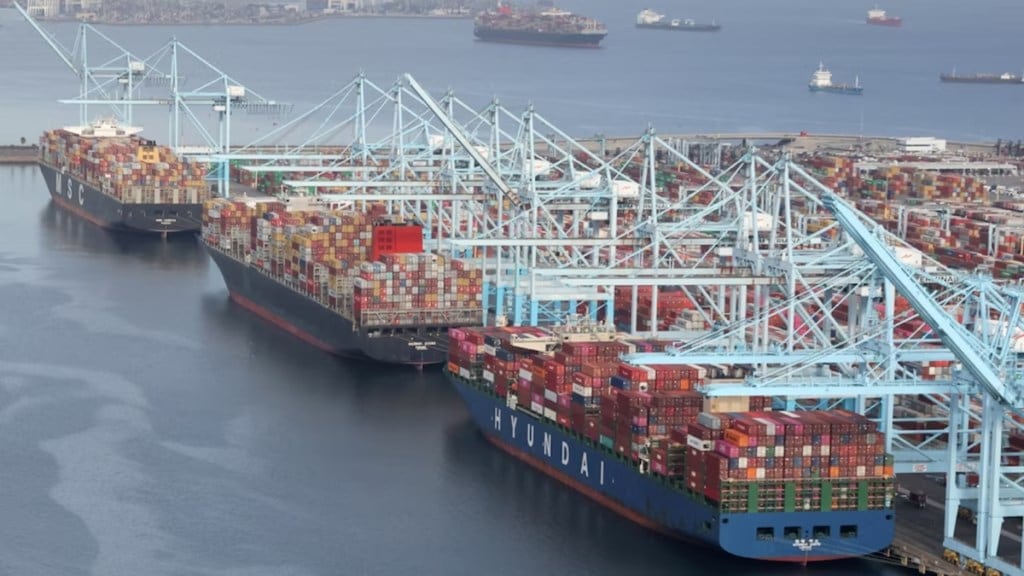There has been no disruption in shipping routes passing through Straits of Hormuz till now but the government is closely watching freight rates and exploring alternatives in response to the evolving situation, a senior official said Friday.
The commerce secretary Sunil Barthwal held a meeting on Friday with representatives from shipping and air cargo sectors and government departments dealing with the sectors to discuss the impact of the conflict on India’s trade and address specific concerns.
Apart from the likely impact, the actions that can be taken by the trade and the government to normalise the situation if the war disrupts world shipping were also discussed. A commerce ministry source said freight and insurance rates are being closely monitored and a ship reporting system is in place to monitor any incidents.
For exporters using the Red Sea route, shipments are being routed to ports like Jeddah and Alexandria. Freight rates for Red Sea ports like Aqaba (Jordan), Beirut (Lebanon), and Latakia (Syria) have risen $ 500–600 per 20 feet container and transit times have also gone up, according to trade sources. Ocean freight from Indian ports to European Union (EU) and Mediterranean ports has surged by $ 1,000 per twenty foot container..
As of now, Iran’s Bandar Abbas port is operational and being used for cargo movement to Afghanistan and other CIS countries, including Russia. “However, if the conflict continues beyond Monday, the route may also be impacted,” trade sources added.
In case ship movement in the Persian Gulf is blocked, exports to Gulf and Mediterranean countries will also suffer. Currently, buyers have put orders on hold, and exporters are delaying shipments due to concerns that goods may get stuck at ports, leading to heavy demurrage, they said.
It is reported that Basmati rice exports to Iran have completely stopped, and shipments to the Middle East have become expensive for basmati rice exporters.
In view of the Israel-Iran war that started on June 13 there has also been an increase in the cost of insurance for ships sailing in the Persian Gulf. They have gone up to 0.2% of the value of a ship from 0.12% prior to the conflict breaking out.
Reports have also said that some ships are avoiding the Straits of Hormuz and Red Sea and there has been a modest drop in the number of ships sailing through the area.
Additionally Iran has threatened to close the Strait if the US gets involved in the war “operationally and officially”. The US on Thursday said it will decide whether to enter the war in the next two weeks. There have been reports of the US starting to move its military assets to its bases in West Asia.
In the current circumstances the focus on Chabahar Port—an Indian-managed port in Iran—could help the industry. There is connectivity via Dubai and direct linkage from Kandla Port, trade sources said.
Around 80 % of India’s merchandise trade with Europe passes through the Red Sea and substantial trade with the US also takes this route. According to Global Trade Research Initiative founder Ajay Srivastava, nearly two-thirds of India’s crude oil and half of its LNG imports pass through the Strait of Hormuz, which Iran has now threatened to close.


